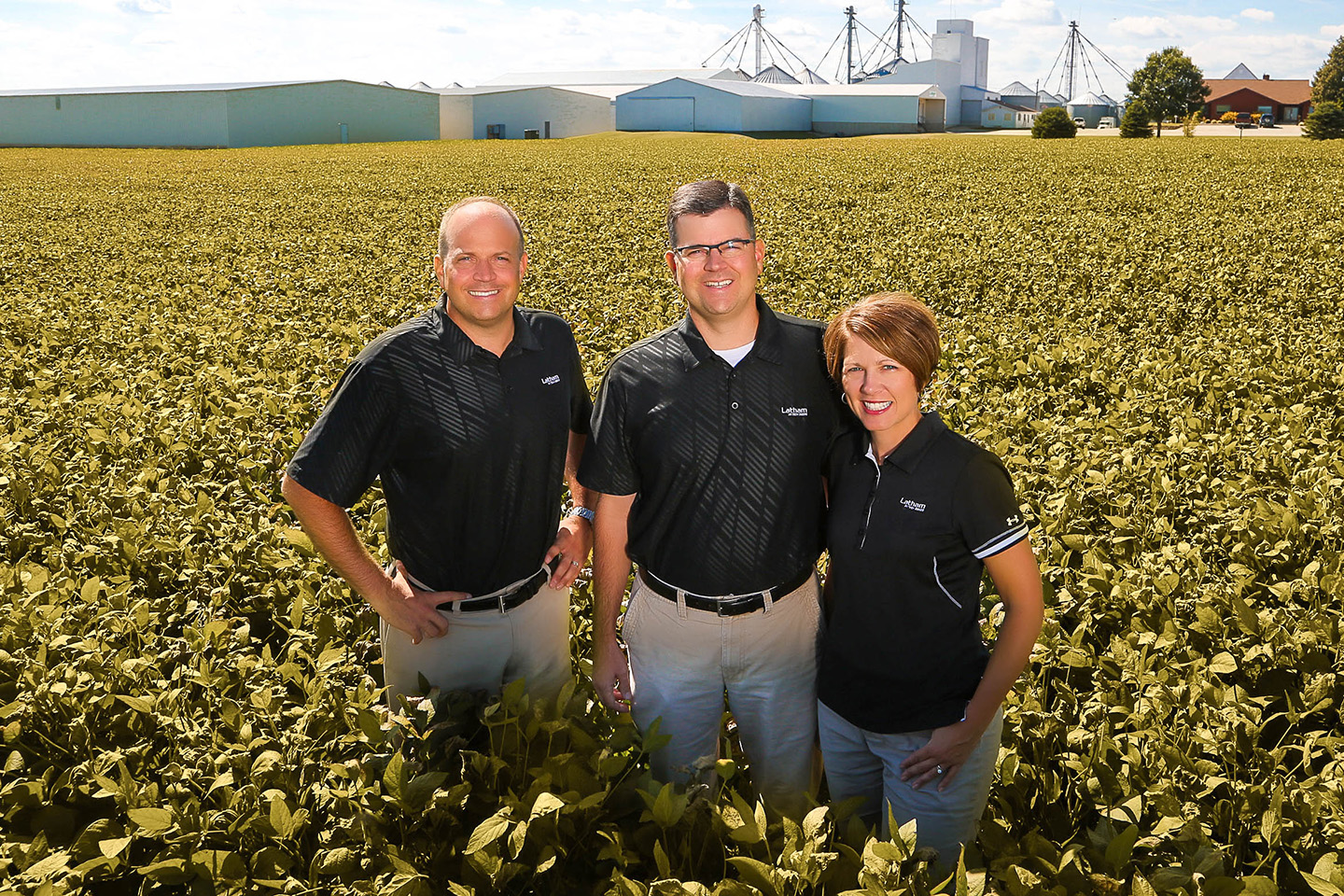
(Photo: Latham Hi-Tech Seeds)
Latham Hi-Tech Seeds celebrates 75 years as a regional seed company
September 27, 2022 | Aaron Putze, APR
“I enjoy golf - it's a fun hobby," says John Latham while gazing at framed portraits of Augusta National Golf Club and St. Andrews, iconic venues of the sport, adorning his modest office.
“I still do, but I’m just not that good anymore.” The honest admission from the president of an independent seed company that bears his family’s name is on par with how John does business: honest, direct and with no regrets.
Located near Alexander in north central Iowa, Latham Hi-Tech Seeds is celebrating 75 years of operations. Founded in 1947 by John’s grandfather Willard, the company serves farmers in six states with a diverse lineup of high-performing soybean, corn, alfalfa, silage and cover crop seed. More than 300 dealers and 55 employees fulfill the company’s mission of being a strong, customer-focused regional seed company.
Leading a successful company in the competitive seed business at the expense of his golf handicap is a trade John gladly makes. He and his wife Shannon purchased the company in 2009 from his father Bill and uncles Don and Tom. Stepped-up investments in personnel, research and development, equipment and technology have fueled the company’s growth during an era of consolidation in the seed industry.
“Farmers are looking for products that work on their farm and someone they can trust,” John says. “We’re local and if we’re going to put something on the market, it’s going to be of the highest quality. That’s how it has to be when every bag of seed you sell has your name on it.”
Service without cell
After earning an ag businesses degree from Iowa State University in 1992, John worked as an agronomist for two years before joining the family company as a district sales manager for eastern Iowa and Wisconsin.
“There wasn’t a cell phone in sight,” he recalls. “I used the road and pay phones to connect with customers, learn the business and build the brand.”
In 2004, he was appointed sales and marketing director, a position held until purchasing the company five years later.
“Social media and technology have exploded and allow us to work differently,” he says. “Yet nothing builds relationships and creates a customer for life like face-to-face communication.”
In addition to connecting personally with customers, Latham Seeds invests in genetic sourcing and seed treatments to help soybean farmers battle iron chlorosis, sudden death syndrome (SDS) and white mold.
“Iron chlorosis is as bad as I’ve seen it in the past decade,” John says. “It’s been testing us and the management practices used by farmers, not unlike SDS when we have wet springs. For whatever reason, soybean cyst nematode doesn’t get talked about as much but continues to be a real and persistent yield robber.”
John says the company’s smaller stature enables it to adapt more quickly. “Our proximity to customers and ability to differentiate have also worked well for us.”
But the company’s size and family ownership can’t shield it from universal challenges facing its competitors, including rising input costs and rapid consolidation of customers and seed suppliers.
“When I started in the business, there were 10 companies in the seed and trait business,” John says. “Now, there are just three.
“The need for additional players is acute,” he adds. “More companies mean more competition, and farmers benefit when there’s competition.”
Performing better on the golf course takes time, practice and patience. The same holds true when improving seed traits, genetics and yield.
“You have to be willing to make significant investments of time and money and be willing to fail,” John says. “You must also treat customers fairly and honestly. This includes not having them plant more technology than they need.”
National leadership
In 2020, John followed in the footsteps of his father Bill and took the helm of the American Seed Trade Association. It advocates for the global needs of the industry on a host of topics ranging from intellectual property rights to sanitary and phytosanitary issues affecting the movement and sale of seed.
“My plan as chair was to travel the world and meet the people and companies that make the industry work,” John says. “But that plan went awry like so many others during the height of COVID.”
Instead of taking to the air, John relied on Zoom and the telephone to lead meetings and conduct interviews on behalf of the association.
“I still have three more years on the board as past chair and can continue to make a difference,” he adds.
While John makes no promises on the future of his golf game, he looks to the next 75 years of the seed industry with a mix of intrigue and concern.
“If I had a crystal ball, I’d use it to know what afflictions will impact soybean and seed production and the kind of technology farmers will need to overcome them,” he says.
Although John enjoys playing 18, it’s working with Shannon and the company’s dedicated family of employees to make farmers more profitable that brings the greatest fulfillment.
“We love what we do and giving back to an industry that’s done so much for us,” he says. “I’m proud of the family for growing the business and being a trusted partner for the farmers we serve. That’s been our approach since our founding and will be for the next 75 years.”
Back